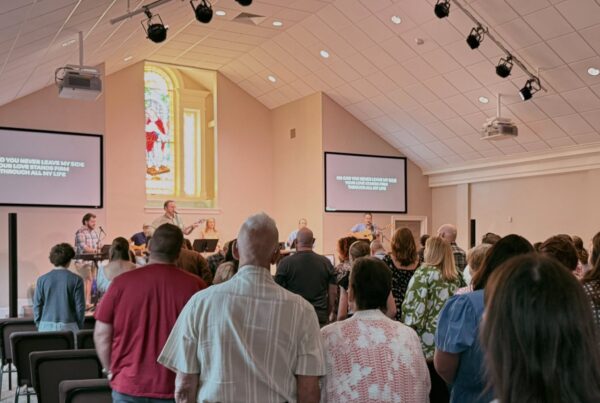“No Christ in your sermon, sir? Then go home, and never preach again until you have something worth preaching.” Charles Spurgeon knew how to hammer home the centrality of Christ in preaching. He likened preaching a sermon without Christ in it to baking bread without flour, calling it a “mistake in conception and a crime in execution.” He’s right: our job in preaching is to give people Jesus.
As preachers, though, we must be clear about what it means to “give people Jesus.” It’s all too easy to talk about Jesus, presenting all he’s done and describing what he’s like, yet never fulfilling our role as preachers. Talking about someone and introducing people to someone are not the same thing.
By Our Strength or His?
Of course, if Jesus is still in a tomb in Jerusalem, talking about him is all we can do. We can try to inspire people by relaying his teachings and recounting all that he did for us. We can seek to instill deep gratitude in our listeners for his sacrifice, motivating them to emulate that same posture in their own lives. And while, to be sure, there is a place for these things in preaching, by themselves they send our people out the door relying on their own strength.
If we tell people to merely harken back to what Jesus did in the past and respond accordingly, we’re making them the primary agent in their transformation. We’re effectively saying, “Jesus got things started; now take it from here.”
But the message of the gospel is not that Jesus accomplished things for us in the past, so now we can strive to remember them appropriately and respond to them in our strength. The good news is that Jesus not only died for us but lives for us—presently! Moment-by-moment, he pours out his Spirit to enable us to walk in his resurrection power as new creations. We can lift Christ up as our example and celebrate him as our atoning substitute, but our preaching becomes complete when we usher our hearers to Christ himself. Click To Tweet
Yes, without Jesus’s past accomplishments, we would still be enslaved to sin. But so, too, would we be enslaved to sin without his present empowerment and transforming grace. The same grace that justifies us also sanctifies us—meaning the work of Jesus in our lives is not confined to the events in Jerusalem two thousand years ago. His work continues today.
When we preach Christ, we must preach him as a living Savior who is right here, in this moment, eager to embrace and equip weary saints. We can lift Christ up as our example and celebrate him as our atoning substitute, but our preaching becomes complete when we usher our hearers to Christ himself. We invite others not merely to think about or appreciate him, but to come to him.
Our Ever-present Help
The question we must ask as preachers is this: If Jesus were not alive today, could I still preach the same sermon? If we could preach the same sermon whether Jesus is alive and presently shepherding his church or not, that should give us pause.
Without a living Savior, we could give people his teachings and even tell of his death on the cross, but we couldn’t offer them hope. Without his present work in our lives, those teachings are merely a standard we can never attain. Without his resurrection, his death is merely an example—and we’ll always fall short.
Another question for examining our sermons is this: Do my listeners know not only who Jesus was for them but who he is for them? When we speak of Christ in the present tense, we introduce our people to the One who can walk with them into their week.
The cross was the ultimate display of divine sacrificial love. Do our people know that the same Jesus who displayed that love two millennia ago loves them in this very moment? Do the people to whom we are preaching know that Jesus is their advocate today, their helper today, and their friend today? Do not merely send your flock out with ideas and information about our risen Lord; usher them back into his embrace. Click To Tweet
Psalm 46:1 tells us that “God is our refuge and strength, an ever-present help in times of trouble.” In Christ, that assurance is made manifest. It is not an abstract promise; it embraces us with human arms.
Preach the Best News
Yes, we must bang the drum of the historical events of the gospel. We cannot proclaim Christ crucified enough! But if he has indeed risen, we have even better news. We can do so much more than telling people about something that happened in the past and spurring them to respond accordingly. We get to tell them how that gospel becomes a tangible, transforming reality: the very presence of Christ in their daily lives.
Do not merely send your flock out with ideas and information about our risen Lord; usher them back into his embrace. Do not merely tell them of the appropriate ways to respond to his saving work; give them the hope and grace of knowing that it is God himself who empowers that response.
We have the glorious privilege of not just pointing our people to the path of life but of introducing them to the One in whom life is found. Let’s not squander it.











